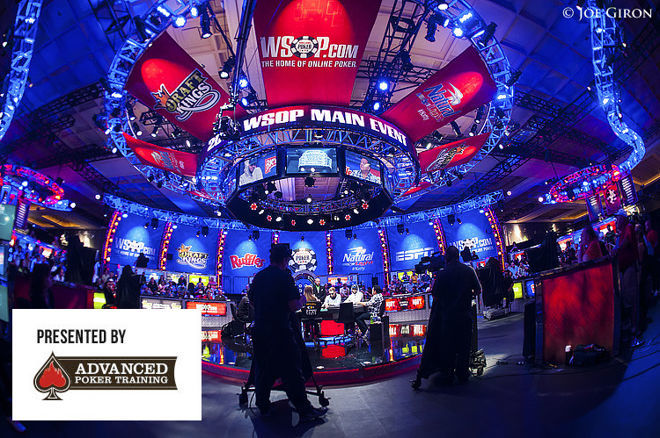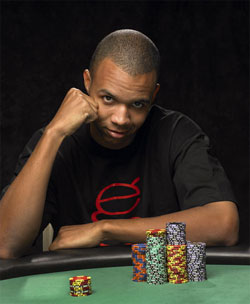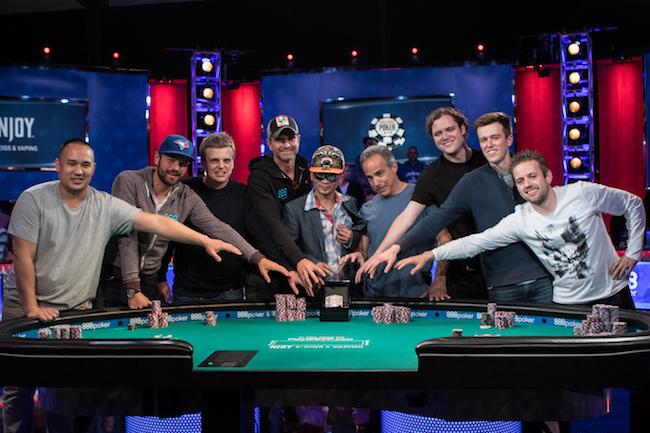A major head-to head matchup between two of the biggest names in poker finally got underway this past week. Read all about that and everything else that took place in the week that was in poker.
Head-to-Head Poker Begins
WSOP will land all eyes of the poker world beginning November 8, as the November Nine commences live on ESPN. The Rio will welcome back the Main Event’s nine finalists for a no-limit showdown. The field drew 6,598 players and the November Nine was again devoid of any big-name poker stars. 9 chip lead was held by American Jesse Sylvia but it was perhaps most notable for who didn’t make the cut. Female players Gaelle Baumann and Elisabeth Hille busted in 10th and 11th, respectively.
If you had believed the hype, you might have assumed that the head-to-head showdown between Daniel Negreanu and Doug Polk would be more contentious than the recent election. After all, for more than half a decade, these two poker titans have been sniping at each other on social media.
On top of that, the process of agreeing on the specifics of the matchup was protracted and messy. This thing was first agreed upon in the summer, and yet they didn’t deal the first cards until a week ago on Sunday.
But once it finally began with a head-to-head session, the two combatants were downright cordial to each other.

It wasn’t quite a mutual admiration society, of course. But to watch Negreanu and Polk go at it, there was never a moment where you thought the table would be tipped over and chairs would be thrown.
That means it was all about what would transpire on the felt. Coming into the match, Negreanu was a 4 to 1 underdog on most top gambling websites. The main issue was that the head-to-head format seemed to favor Polk, who was much more comfortable in that setting.
2016 Wsop November 9
Jumping to any conclusions based on a small portion of the match seemed to be hasty, especially since the action was moving over to a format that was much more in line with Polk’s favored style: multi-table and online.
So, it was that Polk took control with an excellent performance in that second session, outdoing Negreanu over 424 hands of action by over $218. That now puts him out in the lead by slightly over 100,000 after two sessions.
The Element of Luck

The interesting thing about this is that it wasn’t that Negreanu played poorly or that Polk played particularly well. Instead, it was just a matter of luck. Polk pulled some excellent cards that often left Negreanu running straight into a brick wall with hands that weren’t that bad at all.
And that’s an element that is bound to come up in shorter sessions like these first two that have begun this matchup. That’s why the bigger picture is the important part when judging between the two. Remember that the parameters of the showdown require, at the very least, for 12,500 hands to be played between the two (only 624 have been played so far).
At that point, the player losing can call it a day. Or they could continue through 25,000 hands, possibly even doubling the bet along the way. By the time Polk and Negreanu play that much, all the luck should have evened out by then, and we should have a better understanding of who the better man is at this stage.
As you might expect with these two, things remained fluid right up to the first cards dealt. Negreanu had balked, at different times during the runup to the match, about hole-card reveals and pre-flop charts being used. But both were in evidence once play began, and there isn’t any indication that might change.
To this point, even that has been relatively quiet. About the only interaction they’ve had on Twitter to this point has been to admit that they both struggled a bit during the online session with mis-clicks, leading to plays that they hadn’t intended.
It’s nice to see that they have found some measure of agreement during this battle. Let’s see how long the good vibes last.
Games People Play
Poker simulations have long been a part of both the PC gaming and console scene. But a new one that is arriving in November could be a real game-changer. And it’s just not because of how the game plays, but also because of how it looks.
You can also take your time and learn how to play poker if you are relatively new to the scene. That kind of tutelage can certainly come in handy, and then the game play will help you try out these different techniques.
But what is really striking about Poker Club is the way that it looks. It uses ray tracing technology for its visuals, which is something that is usually used for games with a bit more visual action. But who says that poker players should be left out of the fancy stuff?
Based on the trailer for the game that has been released, it is quite striking indeed. The cards themselves look unbelievably crisp and colorful, and the overall settings are inviting and scenic. You can even watch the shadows on the table change as the game advances and time passes.
In addition, the game promises excellent AI, so that Poker Club finds the sweet spot between being too demanding for newcomers and too easy for veterans. And the trailer also promises that the cards that come during game play will be random and represent a fair and realistic experience.
It remains to be seen if this game will be able to make it through the deluge of offerings that will start to pop up during the runup to the holiday season. But what is certain is that Poker Club definitely looks the part of a top poker simulation. Time will tell if it can indeed hold up under that scrutiny once actual poker enthusiasts dig in and start to play.
Or download MP3 (Right-click or option-click and save link)
FRITZI BODENHEIMER: Welcome to THIS IS AMERICA in VOA Special English. I’m Fritzi Bodenheimer with Mario Ritter. This week on our program, we deal with the World Series of Poker in Las Vegas, Nevada.
MARIO RITTER: We also talk about the defending champions of baseball's World Series, the New York Yankees. We look at the effects that team owner George Steinbrenner had on the business of sports.
(MUSIC)
FRITZI BODENHEIMER: More than seven thousand players competed this month in the World Series of Poker Main Event. To enter, they had to pay ten thousand dollars. For thirteen days, player after player competed in games of no-limit Texas Hold 'em. Finally, in the early morning of July eighteenth, only nine remained.
These card players -- all men -- will return to Las Vegas in November for the final table. The winner will leave with almost nine million dollars and the title of two thousand ten world poker champion. The winner also gets a World Series of Poker gold bracelet.
But none of the so-called November Nine will leave empty-handed. The first finalist to lose will receive eight hundred thousand dollars. The winnings go up from there. For example, the player who finishes in fourth place will still take home more than three million dollars.

MARIO RITTER: Last year, the World Series of Poker produced its youngest champion yet. Joe Cada of Michigan was just twenty-one last November when he won the main event.
This year a twenty-two-year-old from Quebec, Canada, is the leader going into the final table. Jonathan Duhamel has never finished above the top ten before. He says 'I don't have much tournament experience but I'm confident in my game.' He says he is going spend the next few months playing in European poker events but also having fun with his friends and family.
Poker November 9 2020
Twenty-four-year-old John Dolan of Florida is in second place going into the final table in November. He is a successful online player, but so far his biggest win in live tournament play was eighty-two thousand dollars. His mother and father spoke to reporters last week after he became one of the November Nine. They said they were not sure about his decision to withdraw from university studies to play poker. But now, his father says 'He's a student of the game and obviously he’s good at it.'
FRITZI BODENHEIMER: Organizers of the World Series of Poker tournament in Las Vegas say attendance was up twenty percent from last year. Jack Effel is tournament director of the World Series of Poker. He says the many websites for online poker help card players sharpen their skills.
JACK EFFEL: 'I think poker has spread like wildfire. Obviously the ability to play online, to learn more about the game, you know, from the comfort of your own home [has] definitely, probably increased it more than anything else.'
MARIO RITTER: Poker also gets a lot of attention on TV and from stars who play, like Ben Affleck, Jennifer Tilly, Jason Alexander and Shannon Elizabeth.
(MUSIC)
FRITZI BODENHEIMER: George Steinbrenner was called 'The Boss.' He owned the New York Yankees. His desire to win at all costs produced not only the most powerful team in Major League Baseball. It produced one of the most valuable sports teams in the world. Forbes magazine estimates the Yankees are worth a billion and a half dollars.
Mr. Steinbrenner died July thirteenth at the age of eighty. He had a heart attack at his home in Florida after several years of failing health. With his death, the Yankees remain under ownership of the Steinbrenner family.
MARIO RITTER: George Steinbrenner led a group of investors to buy the Yankees for ten million dollars in nineteen seventy-three. At that point, they had not been American League or World Series winners since the early nineteen sixties. Since then, they have won eleven American League pennants and seven World Series championships.
The Boss was always competing for the best unsigned players in baseball.
It used to be that players in professional sports could change teams only if they were traded, sold or released. But in nineteen seventy-five, two pitchers in Major League Baseball, Andy Messersmith and Dave McNally, fought the system and won.
FRITZI BODENHEIMER: Soon after that, other sports leagues accepted the idea of free agency. Players could sign with any team once their contract expired, as sports economist Andrew Zimbalist explains.
ANDREW ZIMBALIST: 'Another way of looking at it is that a free agent in a sports league is the same thing as anybody else in the United States labor market. We're all free agents. If I wanted to work as a professor, I could send out notes to a hundred different universities and say 'Does anyone want to hire me?' I make my services available to everybody. And at least in theory I can make those schools compete against each other for my services.'
At first, George Steinbrenner opposed free agency. He thought it would ruin baseball. But he quickly adapted to the new rules. He paid record amounts to sign two of the first free agents: pitcher Catfish Hunter and hitter Reggie Jackson. They powered the Yankees to World Series wins in nineteen seventy-seven and the following year.
MARIO RITTER: Under George Steinbrenner the Yankees made offers for nearly all of the best free agents, says sports economist Andrew Zimbalist.
ANDREW ZIMBALIST: 'He was one of the first individuals to take advantage of the new rules. And he pushed the envelope on salaries. He realized he was in this massive media market in New York. And if he could bring great players to New York, they'd be worth a lot of money to him.'
In two thousand seven, the Yankees signed a ten-year contract with Alex Rodriguez for a record two hundred seventy-five million dollars.
The competition for the best players has forced up salaries for all players, not just free agents. In nineteen seventy-five, the average salary in Major League Baseball was just under forty-five thousand dollars. Last year it was nearly three million dollars.
FRITZI BODENHEIMER: High salaries in sports may be the cause of debate. But, as economist Andrew Zimbalist points out, they are the effect of a free market.
ANDREW ZIMBALIST: 'The reason they get so much money is because people love sports in the United States and elsewhere. And they are willing to pay a lot of money to go to games, to buy tickets, to buy luxury seats, to buy the concessions. Corporations are willing to pay a lot of money to be corporate sponsors of these teams. And television stations are willing to pay a lot of money to broadcast their games. So the market system says these players are worth a lot of money.'
Unlike Major League Baseball, salaries in the National Basketball Association and some other leagues are capped. There are limits on how much team owners can spend. The idea is to help keep a competitive balance by preventing the wealthiest teams from getting all the good players.
MARIO RITTER: In the NBA, some people think twenty-five-year-old LeBron James could become the best player ever. The Cleveland Cavaliers drafted him out of high school in two thousand three. He stayed with them, but he was unhappy to never win a championship.
On July first, after seven years with Cleveland, LeBron James became a free agent. He has decided to play for the Miami Heat. Cleveland could have paid him one hundred twenty-five million dollars over six years to stay.
The most Miami could offer him was ninety-six million dollars over five years. But he chose the Heat so he can join two other newly signed stars, Chris Bosh and Dwayne Wade. Sports economist Andrew Zimbalist says the deal shows that money is not everything.
ANDREW ZIMBALIST: 'Because the NBA has a free agency system that has a maximum salary, the players in this case were able to exercise their leverage in an unanticipated way by bringing the three of them together. And in turn there might be an unanticipated outcome, which is that the Miami Heat might end up dominating the NBA for many years to come.'
FRITZI BODENHEIMER: Andrew Zimbalist is the Robert A. Woods Professor of Economics at Smith College in Northampton, Massachusetts. His latest book, 'Circling the Bases: Essays on the Challenges and Prospects of the Sports Industry,' will be published in September.
(MUSIC)
MARIO RITTER: Last year the New York Yankees moved into a new Yankee Stadium. Many people disagreed with George Steinbrenner's decision to tear down the original stadium from nineteen twenty-three. Others say it was a smart business move -- like his decision to create a regional sports network on cable television.
For many years, the voice of Yankee Stadium was Bob Sheppard, the team's public address announcer. He started in nineteen fifty-one. He had to stop when he got sick late in the two thousand seven season. But he recorded the player introductions that were used in two thousand eight at the final game in the original Yankee Stadium.
BOB SHEPPARD: 'Your attention please, ladies and gentlemen. Here is the Yankee line-up. At shortstop -- number two, Derek Jeter -- number two.'
Bob Sheppard was nicknamed 'The Voice of God.' He was also the stadium announcer for several other sports teams.
He was ninety-nine years old when he died at his home on July eleventh. That was just two days before the death of Yankees owner George Steinbrenner.
(MUSIC)

Our program was written by Mike DeFabo, Steve Schy and Caty Weaver, who was also our producer. You can watch a TV report on the World Series of Poker at voaspecialenglish.com. You can also read, download and comment on all of our programs. We're also us on Facebook and Twitter at VOA Learning English. I'm Mario Ritter.

FRITZI BODENHEIMER: And I'm Fritzi Bodenheimer. Join us again next week for THIS IS AMERICA in VOA Special English.